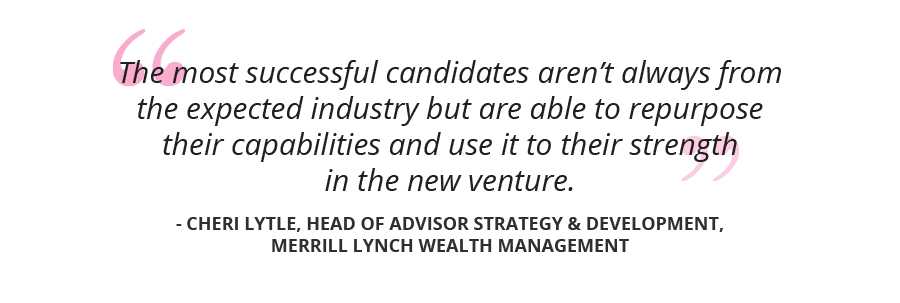It’s never too late to change your career
Picture this: you’re at a crossroads called “mid-thirties” with the desire to change your career.
Perhaps this is because your current career is becoming irrelevant. Maybe you realise the career you chose in your twenties is not what you really want, or maybe your enthusiasm has taken a dip and you just want to try something new.
Change is the only constant in life. The University of Cape Town Change Management online short course helps you prepare for and implement a plan for change not only in your organisation, but other areas of your life too.
Gallup reported 60% of millennials are open to a new career opportunity.1It’s the generation of “job hoppers”. And even if you’re older than the millennial generation, it’s still quite possible for you to suddenly have the desire to do something different – the average person changes jobs five to seven times during his or her career.2
Hindsight is, of course, 20/20, and sometimes it takes a few years before you can look back and realise you’re on the wrong path.
But when this urge to shift career gears happens, how do you plan to navigate the change?
You’ve studied and gained qualifications in a specific skill, and have years of work experience in that field. Surely this means you won’t be hireable for anything other than what you know? Wrong.
Use the skills you already have to try something new
Cheri Lytle, Head of Advisor Strategy & Development, Merrill Lynch Wealth Management supports this idea of “repurposing” skills 3:
“ In my role, I focus on bringing new financial advisors into Merrill Lynch, and I’ve found that the most successful candidates aren’t always from the expected industry but are able to repurpose their capabilities and use it to their strength in the new venture.”
Take a page out of Tanya Nel’s book:
She always dreamed of starting her own catering business but, as a single mother, needed a steady income. So for many years, she worked as a line manager for a printing company, allowing her passion for cooking to only come alive in her household.
At the age of 51, she decided to do an online short course in Restaurant Management, which taught her the skills she would need to start her own business. Coupled with her business knowledge as a line manager, her work ethic and her cooking skills, she finally had the confidence to make the career change and launch her own catering company.
What soft or technical skills have you learnt in your current career that would work in your favour for the career you want to move into?
Figure out what motivates you to deliver your best work
A career change usually occurs because you’re dissatisfied with your current career – which prompts to take a long hard look at what really drives and motivates you.
Is it meaningful work? Flexible work hours? Money? Career prospects?
Once you know what this is, you can carry this enthusiasm into an interview for your new occupation. In the words of Aimee Bateman, AAT Career Coach, “ Employers are not only interested in what we do, but also why we do it.”
Being passionate about your new occupation should also make you work harder in order to make the career change a reality. Teach yourself the requisite skills or take an online course to prove to your future employer you’re willing to do whatever it takes.

Leverage advantages from your previous profession
As an experienced professional there are three things that will work in your favour when making that big career change: connections, money and the halo effect.
Connections:
The connections you would have made from networking throughout your career could prove invaluable when it comes to landing the job of your dreams. This pool of people will be able to point you in the right direction, recommend you to potential employers, or even offer you a job.
Money:
If you have managed to put money away in a savings or investment, you may be able to use your time of unemployment productively. Invest in studying an online short course and volunteer for a cause that relates to the line of work you want to move into. Use the money earned in your previous career to pave the way for a new career.
The halo effect
The “halo effect” is a concept that dates back to the 1920s. In simple terms it’s when you view others as being totally good or totally bad based on your first evaluation of the person. Use this human behaviour to your advantage. When you walk into that job interview, exude confidence and professionalism, recognising that because you’ve been successful in one career, others will likely view you as being successful in another career. If you believe it, they’ll believe it.

You may feel a career change is impossible at your age, and that employers would be reluctant to hire anyone who doesn’t have experience – especially when it comes to high level jobs.
But interestingly, research from Harvard Business School professor Gautam Mukunda claims the opposite. Their findings reveal that outsiders without industry experience are likely to be the best leaders, who can resurrect troubled companies, map out bold new strategic directions, or guide a nascent startup to dominance.4
The question is, are you willing to test their findings and take the leap?
Invest in the skills that will get you hired.
Sign up for Change Management from the University of Cape Town